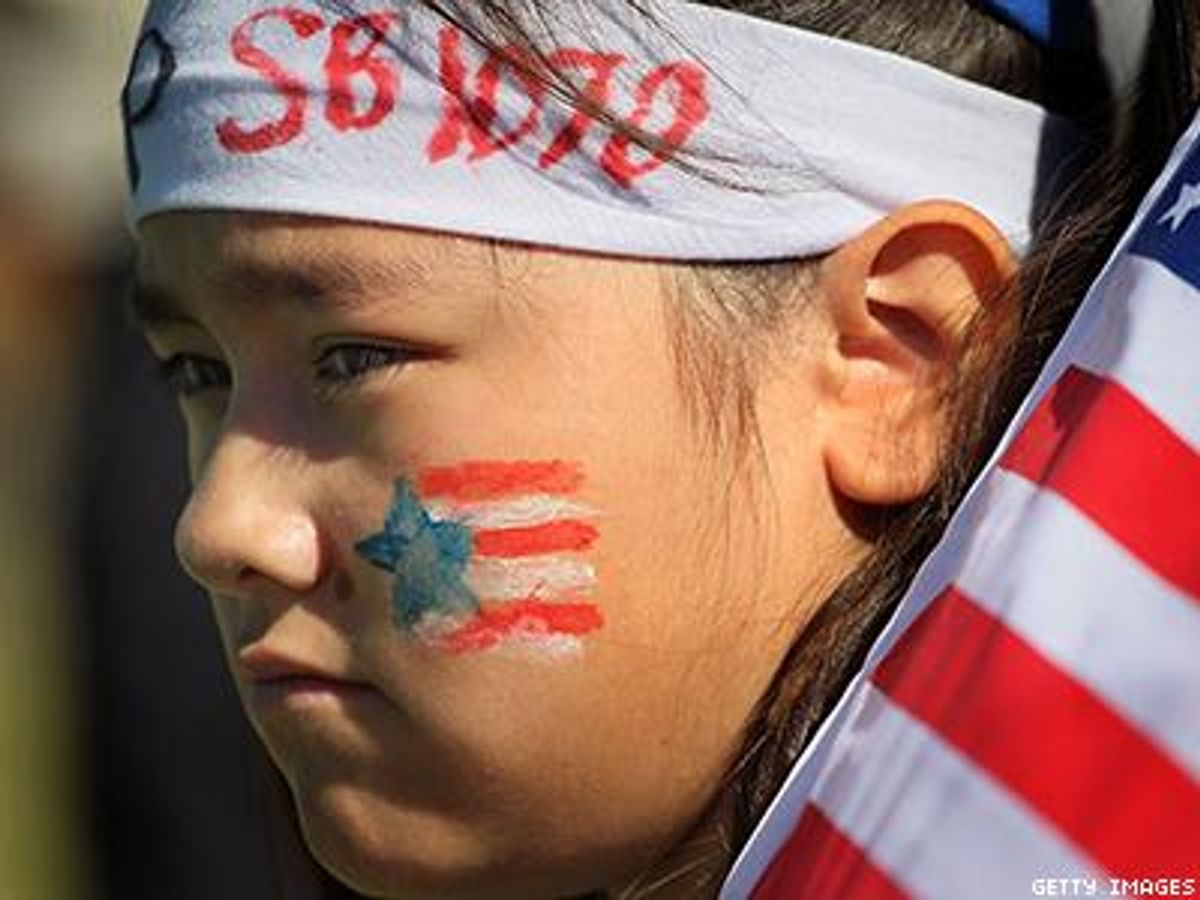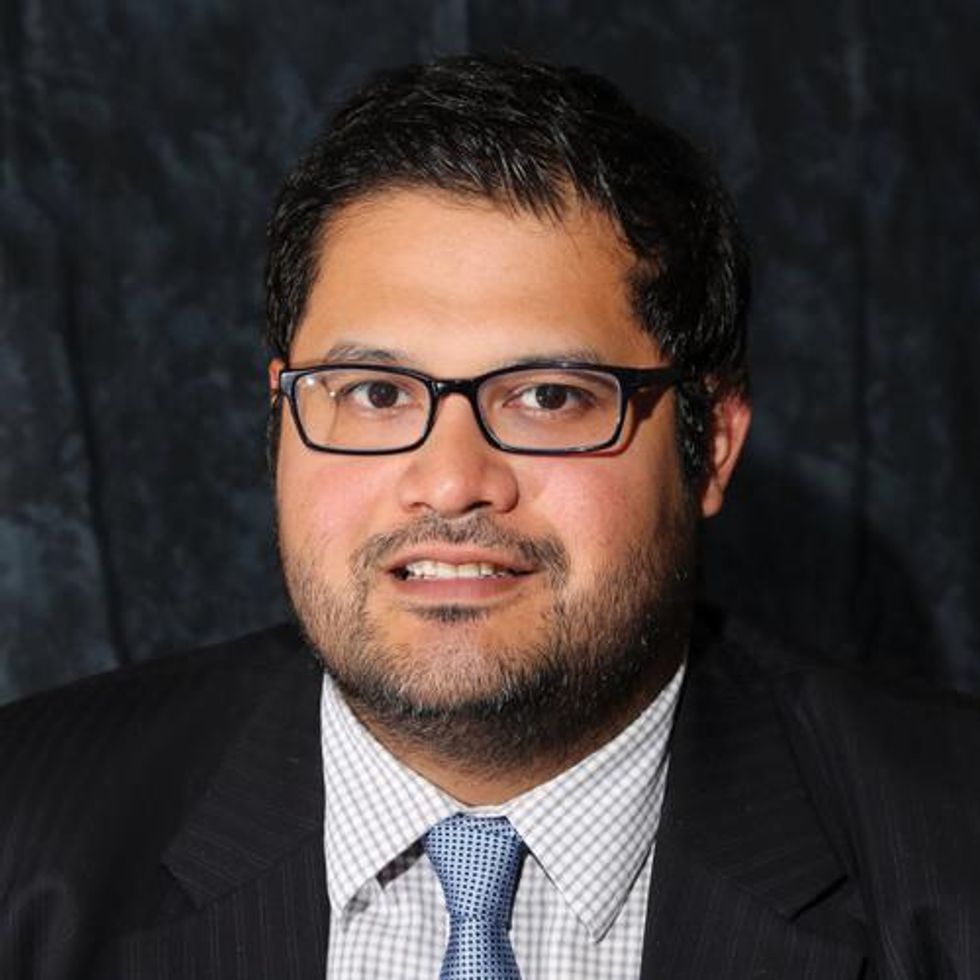The first version of the so-called Religious Freedom Restoration Act, signed into law by Indiana Gov. Mike Pence, would have allowed business owners to deny goods and services to same-sex couples on the basis of religious freedom. It effectively sanctioned discrimination against the LGBT community
After the bill was signed, civil rights groups, businesses, politicians of both parties, churches, and countless private citizens criticized the law. Apple CEO Tim Cook expressed his strong opposition; Angie's List announced it would halt a $40 million dollar expansion plan in Indiana; Salesforce canceled any programmatic activities or travel to the state; and the NCAA experienced pressure to boycott Indiana.
Did Pence expect such a far-reaching backlash? "Heavens, no," he said during a news conference announcing he'd requested that the state legislature review and clarify the law's intent.
The outcry should not come as a surprise. Prior to the law's passage, there was opposition motivated by its discriminatory effect. The sad reality is that the discriminatory effect is the exact intent of the supporters of this legislation. Thirty legal scholars wrote letters to the Indiana House of Representatives outlining the negative consequences of enacting an antigay law. LULAC sent a letter to the legislature urging that the bill be repealed and instead replaced with non-discrimination legislation protecting all Hoosiers.
Similarly, Arkansas Gov. Asa Hutchinson, upon receiving the proposed Religious Freedom Restoration Act in his state, refused to sign the bill and requested that the legislature amend or recall it in order "to recognize the diversity of our workplace, our economy, and our future." This effort resulted in fixes to the laws in both states so that they now ostensibly cannot be used to discriminate, although some activists point out that both Indiana and Arkansas still lack statewide LGBT-inclusive antidiscrimination laws.
Through its letter campaigns to the Indiana and Arkansas state legislatures, LULAC has continued to demonstrate its commitment to LGBT equality at the national, state, and local level. In fact, many LULAC leaders are proud members of the LGBT community and continue to make enormous contributions in the fight for both Latino and LGBT equality.
As LGBT Americans found themselves united against this legislation, Latinos can recall similar situations in the past, particularly the debate surrounding SB 1070 in Arizona. While originally passed under the guise of border security, as opposed to religious freedom, the bill aimed to provide broad immigration powers to local law enforcement authorities. SB 1070 essentially permitted law enforcement to discriminate through profiling techniques that permitted them to indiscriminately stop and question any Latino. Immediately challenged in the court, and now almost entirely dismantled, LULAC and other Latino activists were successful in exposing the wrongful intent of the legislation, but the work is not yet done.
LULAC was founded during a time when Latinos were disenfranchised through poll taxes, left out of juries, and denied basic goods and services, and their children were sent to segregated schools. Laws like the Religious Freedom Restoration Act, SB 1070 in Arizona, and restrictive voter registration requirements infringe on our civil rights and divide communities.
They place individuals in a subcategory and make it legal for businesses and law enforcement to discriminate against them. These laws are products of political games that make pawns of groups like Latinos, undocumented people, and in this case, LGBT individuals. Let us use this opportunity to strengthen the ties between the Latino and LGBT civil rights movement and ensure that no one is denied their basic civil rights on account of their identity.
 LUIS TORRES is the director of policy and legislation for the League of United Latin American Citizens. Prior to joining LULAC, he served as legislative director for Congressman Silvestre Reyes, former Chairman of the House of Representatives Permanent Select Committee on Intelligence, and was one of a handful of Latino legislative directors in the U.S. House of Representatives. Torres also taught high school in Washington, D.C.. as part of Teach for America.
LUIS TORRES is the director of policy and legislation for the League of United Latin American Citizens. Prior to joining LULAC, he served as legislative director for Congressman Silvestre Reyes, former Chairman of the House of Representatives Permanent Select Committee on Intelligence, and was one of a handful of Latino legislative directors in the U.S. House of Representatives. Torres also taught high school in Washington, D.C.. as part of Teach for America.


 LUIS TORRES is the director of policy and legislation for the League of United Latin American Citizens. Prior to joining LULAC, he served as legislative director for Congressman Silvestre Reyes, former Chairman of the House of Representatives Permanent Select Committee on Intelligence, and was one of a handful of Latino legislative directors in the U.S. House of Representatives. Torres also taught high school in Washington, D.C.. as part of Teach for America.
LUIS TORRES is the director of policy and legislation for the League of United Latin American Citizens. Prior to joining LULAC, he served as legislative director for Congressman Silvestre Reyes, former Chairman of the House of Representatives Permanent Select Committee on Intelligence, and was one of a handful of Latino legislative directors in the U.S. House of Representatives. Torres also taught high school in Washington, D.C.. as part of Teach for America. 
















































































